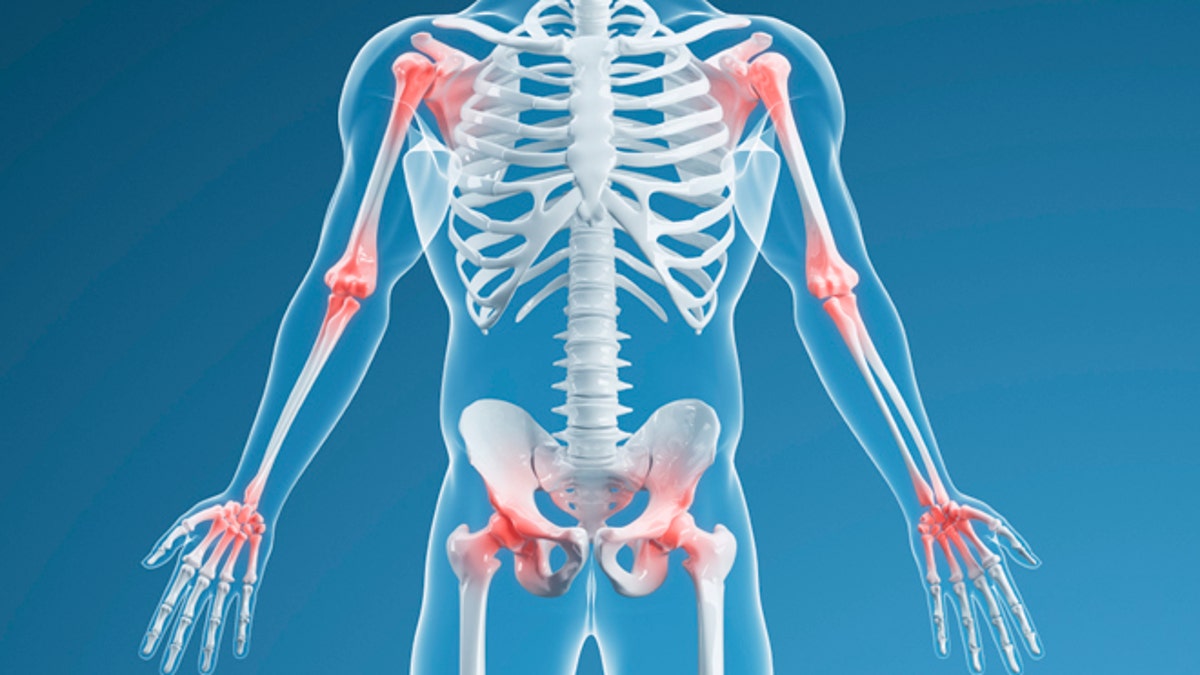
A new study has identified an enzyme in mesenchymal stem cells (MSCs) that is responsible for creating either bone or fat— a finding that scientists argue may lay the groundwork for new osteoporosis and obesity treatments.
Researchers at the Interdisciplinary Stem Cell Institute (ISCI), at the University of Miami Miller School of Medicine, say their findings are preliminary but promising.
“We got very interested in the idea of there are all of these diseases of the bone that plague human beings, so we wondered if we understood the cells better, would we able to understand their role in diseases,” lead study author Dr. Joshua Hare, founding director of ISCI, told FoxNews.com.
The study was conducted using mice that lacked an enzyme that regulates the level of nitric oxide signaling, a key in determining whether MSCs become fat or bone cells. MSCs from the mice that genetically lacked the enzyme made more bone cells and fewer fat cells. The researchers identified the switch, called a GSNOR, which they believe will translate clinically to help better understand how drugs may be able to manipulate the GSNOR, possibly offering future treatment for obesity and bone-disease related illnesses.
“Drugs do exist to block the GSNOR. We do plan to do tests using the drug in actual circumstances of osteoporosis and study them at a very biochemical level,” Hare said.
But the switch was not without consequence, as it also triggered a harmful side effect. “When the animal started to produce more bone, it also turned on a pathway that created other cells to eat some of the bone, so we haven’t perfected the way that this would be used clinically,” Hare said.
Hare said that once the potential therapy is perfected, it could have a profound effect on the aging population’s quality of life.
“By providing a way to produce more bone cells, MSCs create the potential to keep people active for much longer than previously possible and thus improve overall quality of life for seniors,” he said.








































